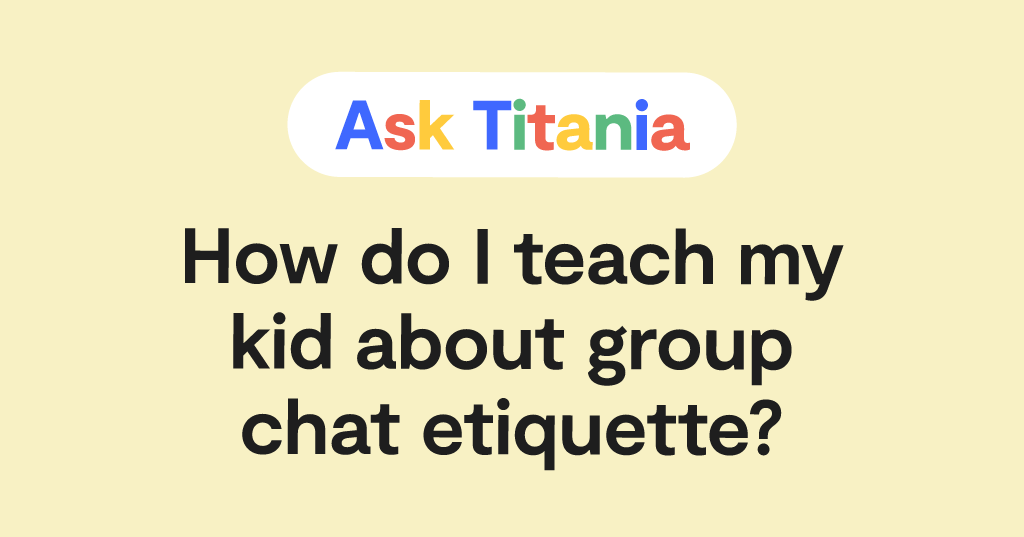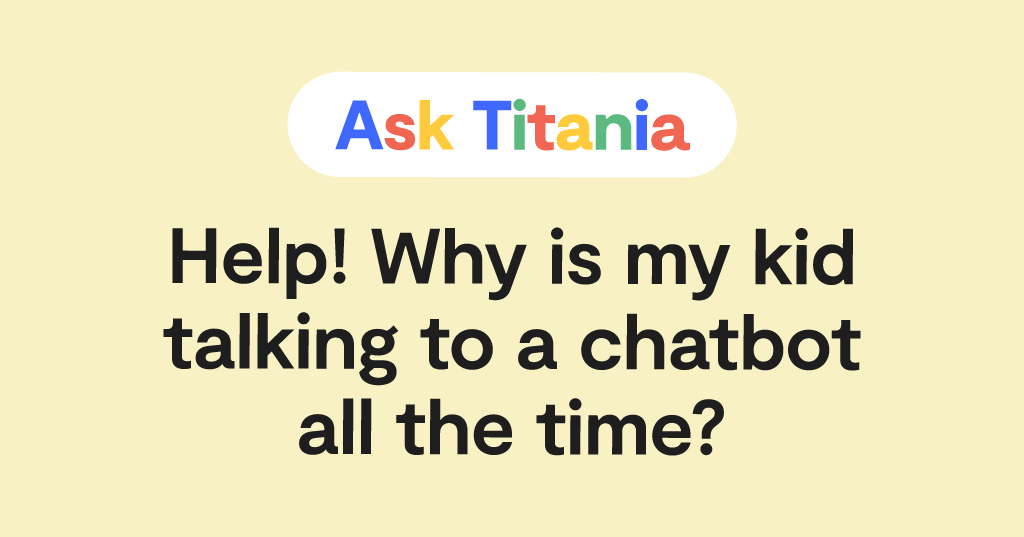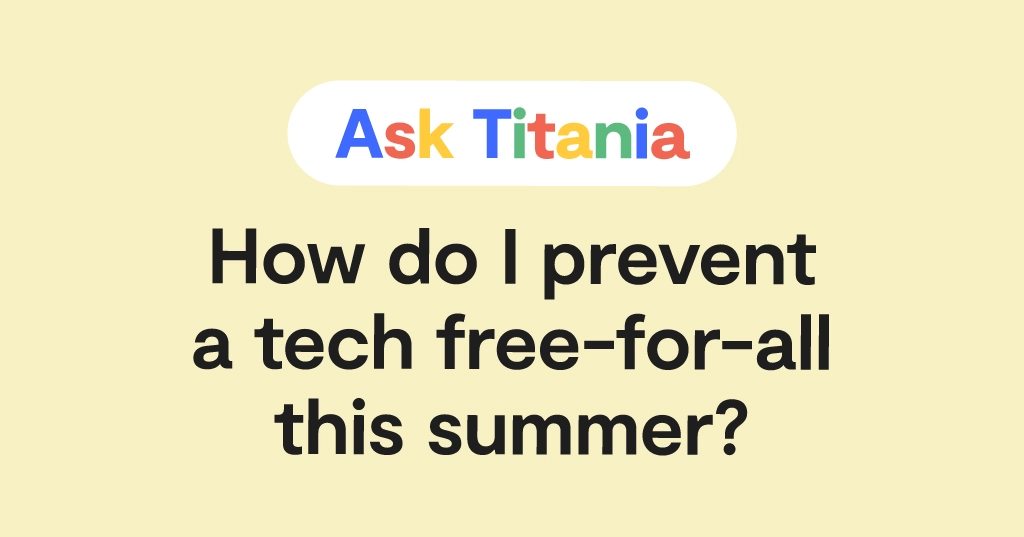Dear Titania,
My daughter just turned 17, and she’s been insisting that she doesn’t need any more parental controls on her phone. She feels ready for total freedom, but as her mom, I still worry about too much screen time affecting her sleep and focus. We’ve had downtime set to 11 p.m. to 7 a.m., and she’s growing more frustrated by the limits each day.
It’s hard to know when to let go and trust that she can set her own boundaries. How do you find the balance between giving your kid who’s almost an adult independence while still protecting their well-being?
Signed,
Conflicted About Control
Dear Conflicted About Control,
You’re so right about this age! There’s something about 17 that feels simultaneously so close and yet so far from adulthood. As a parent, you start feeling a tug-of-war between still wanting to protect them and also preparing them for life on their own. It’s harder than anyone ever warns you about.
Some milestones are clear-cut, like getting a driver’s license or graduating from high school. There’s a start, an end, and usually a checklist to follow. But things like managing screen time in the day-to-day? There isn’t any handbook, and it’s difficult to know exactly when to cut it off. The day before and the day after they turn 18, they’re still technically the same person — that’s what makes it so tricky.
I’ve talked to a lot of parents in your situation over the years, and there are so many different approaches to take. Every family is different, so instead of just giving one answer (which is almost impossible), I'm going to share some general themes that have helped other families address this issue. I have a feeling you’ll find parts that will speak to both you and your daughter’s point of view.
Shift from Control to Coaching
Younger kids need constant guidance and rule enforcement to make sure they’re doing everything they need to, from brushing their teeth to waking them up for school. But by the time your daughter is 17, you’re more in the “making sure they’ve built strong habits” phase of your relationship rather than the “please, please brush your teeth” phase. This means talking with them, not just setting arbitrary rules.
If they want more freedom, great! Now’s the time to learn how to do it responsibly and with light oversight. Start extending their screen time limits slowly — maybe an hour at a time to begin — and see how they handle it.
Also, have honest conversations about screen time and its effects on their life, and discuss how you put in place safeguards to keep yourself healthier knowing that screen time is so addictive.
Let Consequences Play a Role
There’s real value in letting teens feel the consequences of their actions, whether it’s letting them get a zero for homework they forgot or feeling tired all day because they stayed up too late. These are the kinds of life lessons that stick, and they’re often more powerful than a strict rule.
When it comes to screen time, you may want to try an experiment and see what happens if your daughter gets free rein. Will her grades start slipping? Will she be cranky if she gets less sleep? This is where it gets tricky. You don’t want to sit idly by while the big stuff is affected, but at the same time, you want her to start realizing what a healthy lifestyle looks like. There’s even a chance that removing screen time limits won’t affect her at all — that she was just pushing back against the idea of them and not the substance. You know, classic teenager behavior.
Revisit Your “Whys”
That brings me to a bigger question: What prompted the late night rules in the beginning? Was it just about protecting sleep? Or was it about limiting exposure to late-night content that could be inappropriate? Or maybe it’s because she would play Roblox until the wee hours when she was younger?
No matter what the original intent was, think about what’s changed and what hasn’t. Honestly, the sleep protection thing is legit. But also, teens have been staying up late and sleeping in for generations — even before smartphones.
Hold Your Ground When Needed
It’s still your home, and you still have your ground rules. Your daughter needs to be holding up her end of the bargain when it comes to school, chores, and family responsibilities. There are plenty of parents that maintain strict rules even after their kid turns 18 but is still in their senior year of high school. That’s even more of a state of quasi-adulthood: to be legally an adult but still financially and emotionally dependent on parents.
Other parents also dictate the rules as long as they’re footing the bill. Some older teens begin working specifically to purchase their own phone and pay the monthly bill. I don’t know that this fixes the issue, because the results of too much screen time — even if financed by a teen — can still bleed over into your family’s life and your child’s well-being.
Connect with Other Parents Going Through the Same Thing
Once your child is 17, the main goal for you is to help them learn how to be a well-adjusted adult. It’s a scary transition, but also a very necessary one. You don’t have to drop all your screen time rules overnight. You do, however, want to be open to shifting from strict control to more conversation, education (about brain science, mental health, and addiction), and understanding. It will help make things easier, I promise.
Raising teens in the digital age isn’t easy, especially when the rules aren’t always clear. But you don’t have to figure it all out alone. If you’re navigating screen time, independence, and all the big feelings that come with parenting older kids, come join us in the Parenting in a Tech World Facebook group. It’s a safe, supportive space full of other parents who are navigating the very same things you are.
Read more
Bark helps families manage and protect their children’s digital lives.






